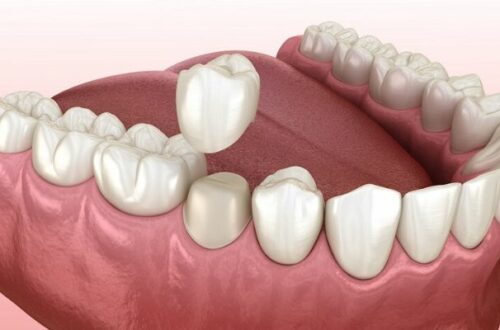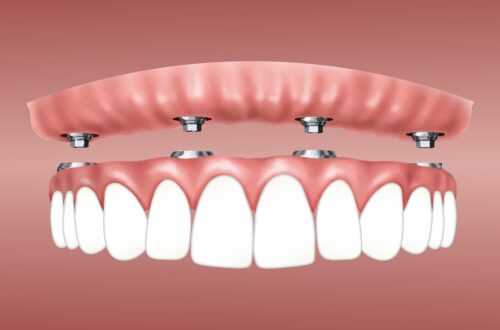
The Telltale Signs: When to Consider a Dental Prosthesis for Your Patients
As a dental professional, you know that every patient is unique and requires personalized care. However, some patients may be experiencing issues that require a more specialized solution. Dental prostheses can be an excellent option for patients who have lost teeth, are experiencing discomfort, or want to improve their overall oral health. But how do you know when it’s time to consider a dental prosthesis for your patients? In this article, we’ll explore the telltale signs that indicate a dental prosthesis may be the right choice for your patients. From difficulty eating to aesthetic concerns, we’ll cover the various factors you should consider when determining if a dental prosthesis is the best solution for your patients’ oral health needs. So, whether you’re a seasoned dental professional or just starting out, read on to learn more about when to consider a dental prosthesis for your patients.
Jesteśmy siecią zrzeszającą w sobie różnego rodzaju kliniki. Prestigeclinic powstało po to, abyś w jednym miejscu mógł znaleźć wszystko, czego potrzebujesz w zakresie zdrowia, a także chirurgii estetycznej!

Skontaktuj się z nami, abyśmy mogli porozmawiać o Twoich potrzebach i wspólnie dobrać właściwe rozwiązanie. Naszym priorytetem jest komfort, zdrowie i bezpieczeństwo pacjentów.
Co nas wyróżnia?
Przede wszystkim fakt, że skupiamy się zarówno na zdrowiu, jak i estetycznym wyglądzie. Zastanawiasz się gdzie wykonać szczepienia zgodnie z Narodowym Programem Szczepień Ochronnych? Planujesz podróż do egzotycznego kraju i potrzebujesz porady w zakresie medycyny podróży? Nie jesteś zadowolony z wyglądu konkretnej partii Twojego ciała? A może trudno Ci pogodzić się ze stanem Twojej skóry i chcesz znacząco na nią wpłynąć poprzez zabiegi? Niezależnie od tego, z czego wynikają Twoje potrzeby – jesteśmy w stanie im sprostać.
Pragniemy również propagować twierdzenie, że zabiegi medycyny estetycznej w dzisiejszych czasach są powszechnymi metodami upiększania i leczenia. Co istotne – mogą po nie sięgać zarówno mężczyźni, jak i kobiety.
Zrób wszystko, aby czuć się ze sobą jak najlepiej! Przecież o to tutaj chodzi, prawda? Jeśli nie możesz czegoś zaakceptować w swoim wyglądzie bądź stanie zdrowia, to może pora to zmienić? Wszelkie niedoskonałości można poprawić – efektywnie, szybko, a przede wszystkim BEZPIECZNIE!
REZULTAT?
Świetne samopoczucie i nastrój, ponieważ możesz czuć się doskonale w swoim ciele!
Nasze priorytety
Stawiamy przede wszystkim na komfort pacjentów, nie zapominając przy tym o bezpieczeństwie wykonywania wszelkich działań. Spoglądamy na każdego jednostkowo, doskonale wiedząc, jak ważna jest odpowiedź na indywidualne potrzeby. Kliniki wykorzystują sprawdzone, wciąż uaktualniane techniki medyczne.
Common Dental Problems and Their Causes
Dental problems can occur due to a variety of reasons such as poor oral hygiene, genetics, trauma, and age. The most common dental problems that require a dental prosthesis are tooth loss, decay, gum disease, and injuries.
Tooth loss can be caused by poor oral hygiene, gum disease, tooth decay, and trauma. It can lead to difficulty in chewing, speaking, and negatively affect the appearance of a person’s smile. Decay and gum disease can cause tooth loss and may require the removal of teeth. Injuries to the face or jaw can also lead to tooth loss, which can be remedied with a dental prosthesis.
How Dental Prosthesis Can Help Your Patients
Dental prostheses are designed to replace missing teeth and restore the function and aesthetics of a patient’s teeth and smile. They can improve a person’s ability to chew, speak, and smile with confidence. Dental prostheses can also prevent further damage to the remaining teeth and gums. They are a long-term solution for tooth loss and can significantly improve a person’s quality of life.
Indications for Dental Prosthesis
There are several indications for dental prostheses, including:
- Missing teeth
- Difficulty chewing or speaking
- Aesthetic concerns
- Pain or discomfort
- Gum disease or decay
- Trauma or injury
If your patient is experiencing any of these indications, you should consider recommending a dental prosthesis.
Types of Dental Prosthesis
There are several types of dental prostheses, including full dentures, partial dentures, and implants. The type of prosthesis recommended will depend on the patient’s specific needs and situation.
Full dentures are recommended for patients who have lost all of their teeth. They are removable and can be cleaned easily. Partial dentures are recommended for patients who have lost several teeth but still have some remaining natural teeth. They are also removable and can be cleaned easily.
Implants are a more permanent solution for tooth loss. They are surgically placed into the jawbone and mimic the function of natural teeth. Implants are recommended for patients who have lost one or more teeth and want a more permanent and natural-looking solution.
The Process of Getting a Dental Prosthesis
The process of getting a dental prosthesis typically involves a consultation, treatment plan, and fitting. During the consultation, the dental professional will examine the patient’s teeth and gums and discuss the different options available. Once a treatment plan has been decided, the dental professional will take impressions of the patient’s teeth to create a custom-fitted prosthesis. The fitting process may take several appointments to ensure the prosthesis fits comfortably and looks natural.
Aftercare and Maintenance of Dental Prosthesis
Aftercare and maintenance of dental prostheses are essential to ensure their longevity and effectiveness. Patients should be advised to clean their prosthesis regularly and remove them at night to allow their gums to rest. Proper cleaning and maintenance can prevent further damage to the gums and remaining teeth.
Frequently Asked Questions about Dental Prosthesis
- How long do dental prostheses last? Dental prostheses can last several years with proper care and maintenance.
- Are dental prostheses painful? Most patients experience some discomfort when first getting a dental prosthesis, but this typically subsides within a few days.
- Can dental prostheses be repaired? Yes, dental prostheses can be repaired if they become damaged or broken.



